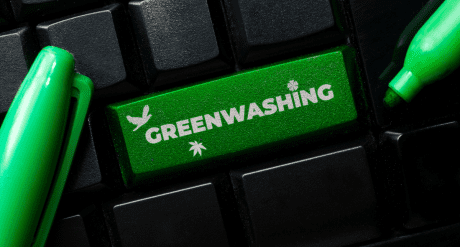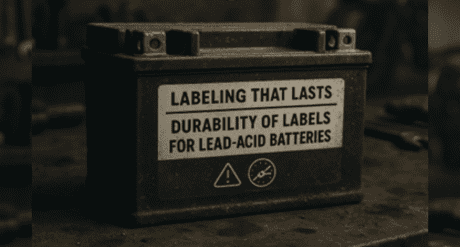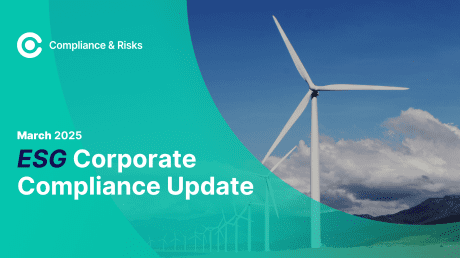
5 Regulatory Issues Your Sporting Goods Company Can’t Afford To Overlook

This blog was originally posted on 9th November, 2023. Further regulatory developments may have occurred after publication. To keep up-to-date with the latest compliance news, sign up to our newsletter.
AUTHORED BY STACEY BOWERS, MANAGER, GLOBAL MARKET ACCESS, COMPLIANCE & RISKS
In the fast-paced arena of Sporting Goods, Outdoor, Equipment, Clothing, and Shoe industries, staying ahead of the game isn’t just about the latest trends and innovations—it’s also about navigating the intricate landscape of regulations. As we gear up for the future, it’s crucial for companies to tighten their laces and prepare for the regulatory hurdles that lie ahead. In this blog, we’re unraveling the tapestry of five imminent pieces of legislation set to impact these industries in Europe and beyond. Get ready for a whistle-stop tour through the regulatory playing field, as we break down the “need to know” details that your company simply can’t afford to overlook. It’s time to lace up those compliance boots and stride confidently into the future.
Extended Producer Responsibility (EPR) Requirements On France (And Proposed In The EU)
In February 2022, France established new requirements for extended producer responsibility (EPR) for sporting and leisure articles.
In the sporting goods and outdoor industry, France’s EPR legislation applies to products such as:
- Bicycles, scooters, skateboards, and rollerblades, including tires and spare parts, protective products and accessories.
- Products for watersports including fins, snorkels, masks, goggles, and wetsuits as well as surfboards, paddles and kayaks.
- Products for mountain sports, such as skis, poles, and boots.
- Outdoor recreation gear, including camping equipment, trampolines, climbing axes and more.
- Racket sports equipment, with balls and ping-pong tables also included.
- Sports fitness equipment e.g., mats, dumbbells, and non-electric weight machines.
To facilitate consumer recycling of spent sports and leisure items, products must bear the Triman (infotri) mark and sorting information by April 28, 2024.
However, Ecologic – the French producer responsibility organization supporting implementation – has clarified that there will be a six-month extension, to Oct. 28, 2024, for stock on the market before the April deadline.
Beyond France, on July 5, 2023, the EU proposed mandatory and harmonized EPR schemes for textiles in all 27 EU Member States.
The initiative will accelerate the development of the separate collection, sorting, reuse and recycling sector for textiles in the EU, in line with the EU Strategy for Sustainable and Circular Textiles.
Producers will cover the textile waste management costs, which will give them incentives to reduce waste and increase the circularity of textile products, designing better products from the start. How much producers will pay to the EPR scheme will be adjusted based on the environmental performance of textiles, a principle known as “eco-modulation.” Common EU EPR rules will also make it easier for Member States to implement the requirement to collect textiles separately from 2025, in line with the Waste Framework Directive.
The Commission proposal on a targeted amendment of the Waste Framework Directive will now be considered by the European Parliament and the Council in the ordinary legislative procedure.
Bans On PFAS Are Already Here
A number of geographies have proposed and enacted bans on per- and polyfluoroalkyl substances, commonly known as “PFAS.” The widely used, long lasting chemicals break down very slowly over time and have been found in water, air, fish and soil at locations across the globe.
In the Sporting Goods Industry, PFAS are used in water-repellent outerwear, such as rain jackets and other gear. But that looks set to change.
Why ban PFAS when they are so effective? Because current scientific research suggests that exposure to high levels of certain PFAS may lead to adverse health outcomes.
PFAS Regulations In the USA
As a result of the growing environmental and health concerns over the use of PFAS, in 2021, the US state of Maine enacted the most stringent global requirements on PFAS.
The Law requires manufacturers of products with intentionally-added PFAS to report the presence to the state Department of Environmental Protection beginning Jan. 1, 2023. The Law also prohibits the sale of fabric treatments that contain intentionally-added PFAS beginning Jan. 1, 2023.
Effective Jan. 1, 2030, any product containing intentionally-added PFAS will be prohibited for sale in Maine, unless designated as a currently unavoidable use by the Department.
PFAS Regulations In the EU
The EU is considering a similarly broad approach to PFAS, based upon a proposal prepared by five Member States (Denmark, Germany, the Netherlands, Norway and Sweden), submitted in Jan. 2023.
The proposal would address the manufacture, placing on the market and use of PFAS, with two different options:
- A full ban with an 18-month transition period
- A ban with use-specific (mainly) time-limited derogations.
The proposal is anticipated to impact a wide range of products, including textiles, apparel, leather, ski wax, and construction products.
The consultation on this proposed restriction ended Sept. 25, 2023.
Scrutiny Of “Green” Claims In France, The EU And The USA
A number of geographies are taking a hard look at “green” claims for sporting goods and all consumer products.
In 2022, France enacted Decree No. 2022-748, relating to consumer information on the environmental qualities and characteristics of waste-generating products. The Decree was enacted under the country’s laws relating to the drive towards a circular economy – commonly called “AGEC.”
The new French legislation on greenwashing requires labeling to indicate the environmental characteristics of covered products, which include clothing, footwear and packaging. It also addresses a number of environmental qualities and characteristics, including:
- Repairability and durability
- Compostability
- Incorporation of recycled materials
- Use of renewable resources
- Recyclability
- Presence of hazardous substances
- Traceability
- Presence of plastic microfibers
The timeline for compliance began Jan. 1, 2023, for companies placing the highest number of units on the French market.
Now, similar legislation is spreading across the EU. In March 2023, the EU Commission proposed a Directive on Green Claims. The Directive would ensure consumers receive reliable, comparable and verifiable environmental information on products, including:
- Clear criteria on how companies should prove their environmental claims and labels
- Requirements for these claims and labels to be checked by an independent and accredited verifier
- New rules on solid, transparent and reliable environmental labeling schemes
The EU Parliament also recently approved a proposed Directive on Empowering Consumers for the Green Transition. The proposal addresses generic environmental claims, such as “environmentally friendly,” “eco-friendly,” “eco” and “green.”
Whilst in the U.S. in March 2023, the Federal Trade Commission (FTC) announced a regulatory review of its Guides for the Use of Environmental Marketing Claims.
The EU’s New Machinery Regulation And Its (Positive) Impact On E-Bikes And E-Scooters
On Jun. 29, 2013, the EU enacted Regulation (EU) 2023/1230 on Machinery. Compared to the 2006 Machinery Directive, the new Regulation establishes a legal framework for the placing on the Union market of safe machinery and covers new risks linked to emerging technologies.
While in its draft phase, the Regulation caused uncertainty in the bicycle industry, as it was meant to exclude “vehicles which have as their only objective the transport of goods or persons.”
The Confederation of the European Bicycle Industry (CONEBI) issued a statement to members outlining its concern: “…[T]he Commission cites that the legal framework was not originally intended for vehicles used on the road and as such road safety risks are not considered. However, the Commission neither assesses the implication for the bicycle industry, nor proposes any alternative framework for e-bikes.”
However, the final text of the Regulation specifies that the Regulation applies to means of transport by road that are not yet covered by a specific Union legal act, except in respect of risks that might arise from circulation on public roads.
This means that vehicles, including e-bikes, e-scooters and other personal mobility devices that are not subject to EU type approval under Regulation (EU) No 167/2013 or Regulation (EU) No 168/2013 or approval under Regulation (EU) 2018/858 are covered by the Regulation.
The new Machinery Regulation takes effect Jan. 1, 2027
The Revision Of The EU’s Batteries Directive And Its Impact On E-Bikes
On 12 July 2023, the European Commission enacted a new EU Batteries Regulation. The Regulation entered into force 17 August 2023. It will repeal the Batteries Directive in 2025.
The Regulation covers the entire battery life cycle – from design to end-of-life – and applies to all types of batteries sold in the EU, including portable batteries, and light means of transport (LMT) batteries (which provide power for the traction to wheeled vehicles such as electric scooters and bikes).
A carbon footprint declaration and label is now obligatory for EV batteries, LMT batteries and rechargeable industrial batteries with a capacity above 2kWh.
To better inform consumers, batteries are required to carry labels and QR codes with information related to their capacity, performance, durability and chemical composition, as well as the “separate collection” symbol.
LMT batteries, industrial batteries with a capacity above 2 kWh and EV batteries are also required to have a “digital battery passport,” including information on the battery model as well as information specific to the individual battery and its use.
Stay Ahead Of Regulatory Changes
Accelerate your ability to achieve, maintain & expand market access for all products in global markets with C2P – Your key to unlocking market access, trusted by more than 300 of the world’s leading brands.
C2P is an enterprise SaaS platform providing everything you need in one place to achieve your business objectives by proving compliance in over 195 countries.
C2P is purpose-built to be tailored to your specific needs with comprehensive capabilities that enable enterprise-wide management of regulations, standards, requirements and evidence.
Add-on packages help accelerate market access through use-case-specific solutions, global regulatory content, a global team of subject matter experts and professional services.
- Accelerate time-to-market for products
- Reduce non-compliance risks that impact your ability to meet business goals and cause reputational damage
- Enable business continuity by digitizing your compliance process and building corporate memory
- Improve efficiency and enable your team to focus on business critical initiatives rather than manual tasks
- Save time with access to Compliance & Risks’ extensive Knowledge Partner network
Market Insights Straight to Your Inbox
Get the most important regulatory updates straight to your inbox. Join 40,000+ product compliance & market access experts around the world!








